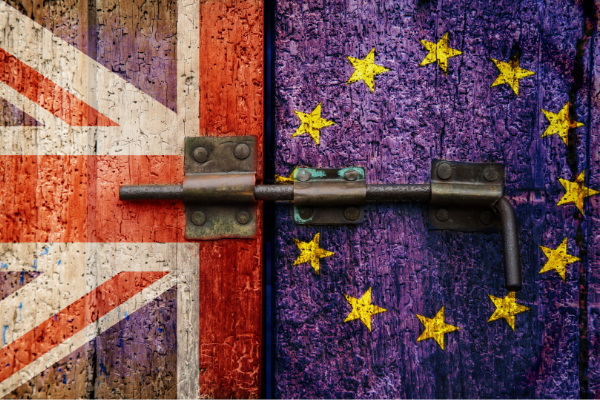BY:
SHARE:

The Guardian Newspaper recently published an article regarding the car manufacturing industry and its issues with the UK-EU Trade and Cooperation Agreement entitled "Why are leading carmakers urging the UK to overhaul Brexit deal?” So, the TCA has made it into the mainstream media, and yet there has been no change within the TCA, but the reality of its rules and regulations and the parameters set within it are now only starting to sink in.
Rules of origin establish the economic nationality of the goods, which is distinct from where the goods are shipped from (the despatch country). The UK-EU Trade and Cooperation Agreement is no different, and those rules of origin now apply. The agreement contains the qualifying rules for preferential origin. The rules of origin within a trade agreement determine trade measures and duty rates applied within the agreed tariffs.
The UK and EU have agreed to 100% tariff liberalisation, meaning there are no tariffs on goods produced within the EU or UK. However, like all trade agreements, there are product-specific rules within the legislation; and these rules can be much more complex for companies that have only ever traded with the EU. Understanding trade agreements and rules of origin can seem like a minefield to such organisations. The List of Product-specific Rules of Origin within Regulation 1(4) in the Customs Tariff (Preferential Trade Arrangements) (EU Exit) Regulations 2020 provides guidance on all goods to uphold the rules within the free trade agreement. This additional origin document outlines the provisions for determining preferential origin treatment within the UK-EU. Circling back to the recent outcry from many within the automotive industry, one of these product-specific rules is apparently causing headaches.
The culprit is the MaxNom Rule, a rule of origin that is widely used within free trade agreements to facilitate trade between the parties to the agreement by ensuring only a certain percentage of non-originating material (MaxNom) can be used within a product. What we mean by non-originating material, in this instance, is material from outside the UK or the EU, for example, China.
This is where we can see many car manufacturers beginning to struggle to meet the requirements of the UK-EU TCA and, therefore, cannot benefit from the preferential rates within the agreement. According to the Guardian Newspaper, multiple leading British car manufacturers have urged the UK government to renegotiate the deal, specifically regarding the manufacture of electric vehicles.
The MaxNom rule for electric vehicles is currently set at a maximum of 45% of the ex-works price (EXW) for non-originating parts (MaxNOM) and battery packs of heading 8507 of a kind used as the primary source of electrical power for propulsion of the vehicle must be originating when you use Commodity Code 8703 10 18.
The UK currently does not have sufficient production of rechargeable batteries for electric vehicles, creating a stumbling block for traders who want to benefit from the TCA. With conflicting opinions from the industry on the future of car manufacture, one thing is sure; this isn't the only sector affected, and finding new ways to trade with the EU under this trade agreement will be at the forefront of the strategy for many UK Businesses.
Free trade agreements are used to decrease trade restrictions and to expand opportunities for the parties involved. We can already see this starting to happen as reported by the BBC that the Jaguar Land Rover owner could be set to choose the UK as the location for a new car battery factory, which would be one of the most significant investments in the UK automotive industry in a long time.
The tariff sets out the availability for preference, but the trader must hold evidence of preferential origin. The rules of origin don't end at the tariff. Proof of preference comes in three forms for the UK EU Trade and Cooperation Agreement, although other forms are used worldwide depending on the stipulations within free trade agreements.
- Statement of Origin
- Suppliers Declaration
- Importers Knowledge
The requirement to hold proof of preference safeguards the preferential treatment within a free trade agreement. As if, at audit, a trader is found to have not met the requirements to claim preferential origin, they will be heavily penalised through the correct duty rate and possible penalties.
Read the full Guardian Article Here.
While you are here you may be interested in some Strong & Herd LLP training courses & live clinics related to this topic:
Understanding Origin & Preference
Understanding Free Trade Agreements
OneCall™ Email assistance as and when required; A one-call solution for all your import, export and customs enquiries. Export help. Import help. Customs help.
Stay informed about customs and international trade matters by subscribing to our OneCall™ service. This comprehensive offering includes a dedicated email helpline for support, timely practical updates direct to your inbox (Did You Know?), monthly UK Customs & Trade Briefings and access to an interactive members' area with an exclusive community for our subscribers.
International Trade Updates & Spotlight Newsletter
Subscribe to our free information emails covering international trade topics...
MORE INDUSTRY INSIGHTS...









